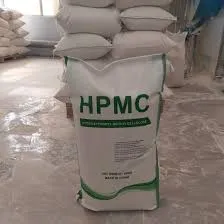
Dec . 04, 2024 01:53 Back to list
Properties and Applications of Hydroxyethyl Cellulose in Various Industries and Research Fields
Understanding Hydroxyethyl Cellulose (HEC) A Versatile Polymer
Hydroxyethyl cellulose (HEC) is a non-ionic, water-soluble polymer that has garnered significant attention in various fields due to its remarkable properties and versatility. This cellulose derivative is synthesized from natural cellulose through the process of etherification, where ethylene oxide reacts with alkali cellulose. The resulting compound is characterized by a high degree of substitution, which affects its solubility and other physical properties. HEC is widely used in industries such as pharmaceuticals, cosmetics, food, and construction, making it an essential material in many formulations.
Understanding Hydroxyethyl Cellulose (HEC) A Versatile Polymer
In the cosmetic sector, HEC is prized for its film-forming properties, which enhance the texture and application of lotions, creams, and gels. It acts as a stabilizer in emulsions, preventing the separation of oil and water phases, ensuring that cosmetic products maintain their consistency and appearance over time. Additionally, HEC provides a smooth and pleasant feel when applied to the skin, enhancing user experience. Its biocompatibility and safe profile make it a favored ingredient in formulations for sensitive skin.
hydroxyethyl cellulose hec

The food industry also benefits from the properties of HEC. It is used as a food thickener, stabilizer, and emulsifier in various products, including sauces, dressings, and baked goods. As a clean-label ingredient, HEC aligns with the growing consumer demand for natural and transparent food labels. Its ability to retain moisture contributes to improved texture and shelf life in numerous food applications, making it an attractive option for food manufacturers.
Moreover, HEC has found its place in construction materials. It is used as a thickener and water-retaining agent in cement-based products, such as tile adhesives and joint compounds. By improving the workability and adhesion of these materials, HEC enhances the performance of construction applications, allowing for easier application and better results.
The environmental aspects of HEC cannot be overlooked. Derived from renewable resources, hydroxyethyl cellulose is biodegradable and can be sourced sustainably, which is increasingly important in today’s eco-conscious market. Its minimal environmental impact combined with its multifunctional capabilities positions HEC as a sustainable choice across various industries.
In conclusion, hydroxyethyl cellulose (HEC) is a versatile polymer with a wide range of applications spanning pharmaceuticals, cosmetics, food, and construction. Its unique properties, including water solubility, thickening ability, and biocompatibility, make it an invaluable ingredient in many formulations. As industries continue to seek effective and sustainable solutions, the role of HEC is likely to expand, further solidifying its status as a key player in modern material science. Whether one is looking to enhance product stability or improve user experience, HEC emerges as a reliable choice, promising a bright future in multiple sectors.
-
tile-bonding-additives-for-stronger-bonds
NewsAug.22,2025
-
construction-grade-rdp-for-wholesale-needs
NewsAug.22,2025
-
trusted-wholesale-hec-partners
NewsAug.22,2025
-
hec-solutions-for-industrial-excellence
NewsAug.22,2025
-
construction-additives-need-hpmc-essentials
NewsAug.22,2025
-
hpmc-versatile-cellulose-ether-for-industries
NewsAug.22,2025







